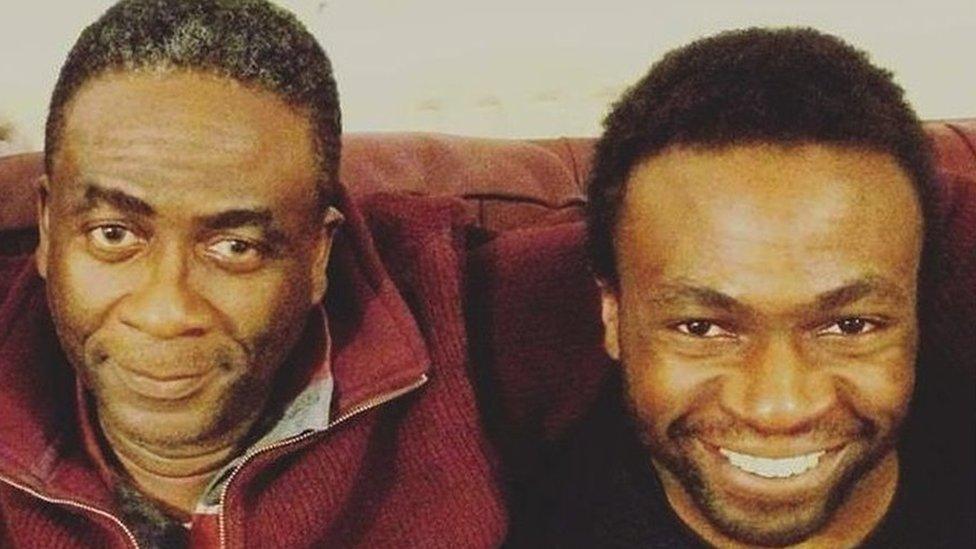Covid restrictions made grief harder to bear in lockdown
- Published
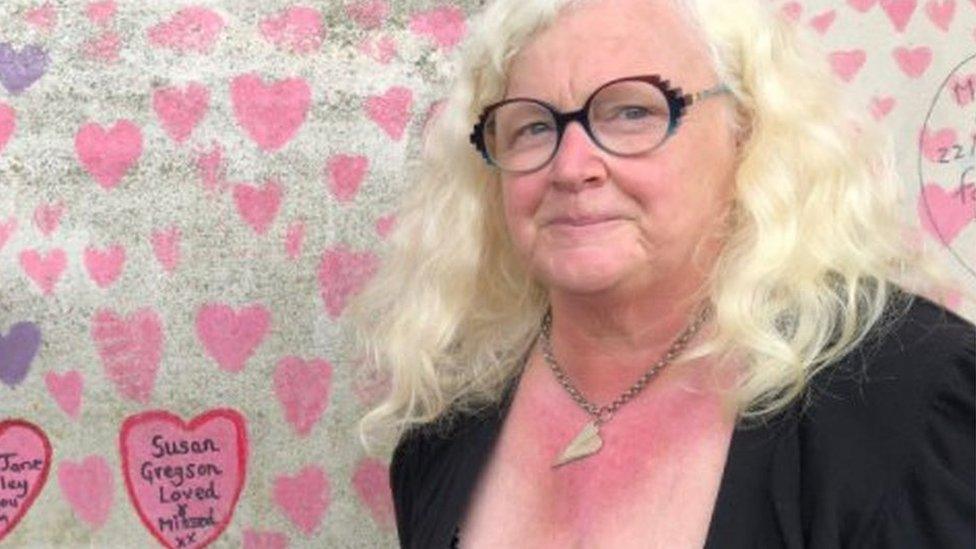
People who were bereaved during lockdown coped less well with their grief afterwards, research has found.
The study by the University of Bristol and Cardiff University found restrictions in hospitals, care homes and at funerals had increased anxiety.
Nicola, from Gloucestershire, said she found it "very hard" to cope when her mother Susan died with Covid-19.
She said the isolation that followed her mother's death in 2020 made the loss feel worse.
Susan died in her care home with no family around her and had a socially-distanced funeral.
"We played some carols, which she loved, and then we all got in the car and went our separate ways to celebrate Christmas," said Nicola.
It was a stark difference to the experience with her father Timothy, who died in 2019 and had a funeral packed with family and friends, she said.
"When the time came we are all together in the room holding his hand and saying our goodbyes."
'Couldn't support her'
The research was carried out via an online survey completed by 711 people who were bereaved in the UK between 16 March 2020 and 2 January 2021.
The results showed anxiety was higher among this group due to people being isolated after losing a loved one during lockdown, and the effect of not being able to hold full-scale funerals.
Nicola said: "We went straight back into another lockdown, so I was working from home again, so again there was that isolation.
"I'm close to my brother and sister and we can talk, but you can't be with them, and so I found it very, very hard."
"The thing that gets to me the most is that we had a wonderful childhood.
"Our parents were so supportive. Mum's family was her world and they were always there, both of them, to support us, and I couldn't support her at the time when she needed it."
'Shock added to bereavement'
Jess Childs was not allowed to see her mum Olwen in the 10 days leading up to her death in hospital in December 2020, aged 71.
Only 20 people were allowed at the funeral, and Ms Child, from Machen in South Wales, said the whole experience wasn't "normal".
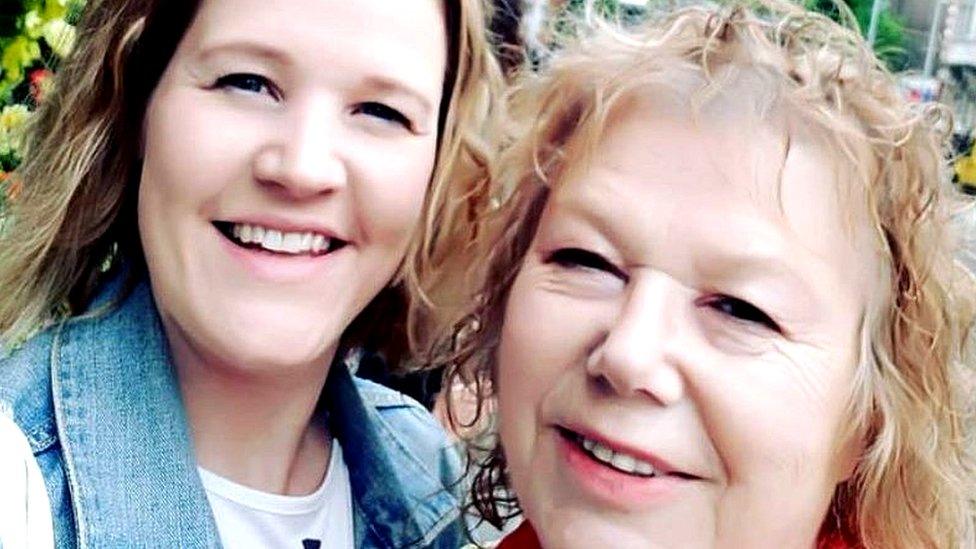
Jess Childs said not being able to properly celebrate her mum's life was "hard"
"When you say goodbye to someone in a pandemic and having said goodbye to two key family members now, it's very hard, because you may have the funeral but you don't have a wake, you don't go back somewhere to talk about and celebrate that person properly and that's really hard.
"It isn't just a bereavement but a shock as well which adds another layer to the grief.
"With my mum, there were loads of people in the community that really wanted to express the loss that they felt for her, and so it almost feels as if that person is cheated out of having their life celebrated."
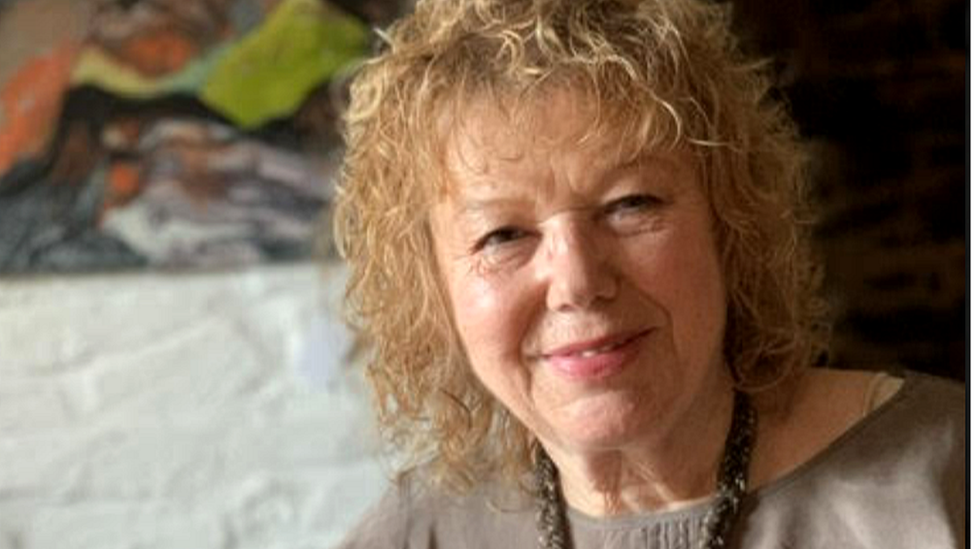
Only 20 people were able to attend Olwen Childs' funeral
Ms Childs, 40, said it was important for her to observe occasions such as the National Day of Reflection on 23 March.
"It [the reflection] is vital to help families like ours to feel that their deaths were not in vain and they've had that recognition," she said.
"My mum was really desperate not to be recorded as a Covid statistic, but she still ultimately is a casualty of this period and there are loads and loads of families out there like us."
Burden on carers too
The research team that worked on the grief study recommends more targeted support in future and is working with the UK Commission on Bereavement, external that aims to improve support for those affected by grief and loss.
Dr Lucy Selman, Associate Professor in Palliative and End of Life Care at the University of Bristol, said it had been a "hugely challenging time" for health and social care staff too.
"They've been struggling to provide care that's safe for everyone in very difficult circumstances," she said, emphasising the importance of good communication and timely and compassionate care for surviving family members at a time of bereavement.

Follow BBC West on Facebook, external, Twitter, external and Instagram, external. Send your story ideas to: bristol@bbc.co.uk , external
- Published8 December 2020
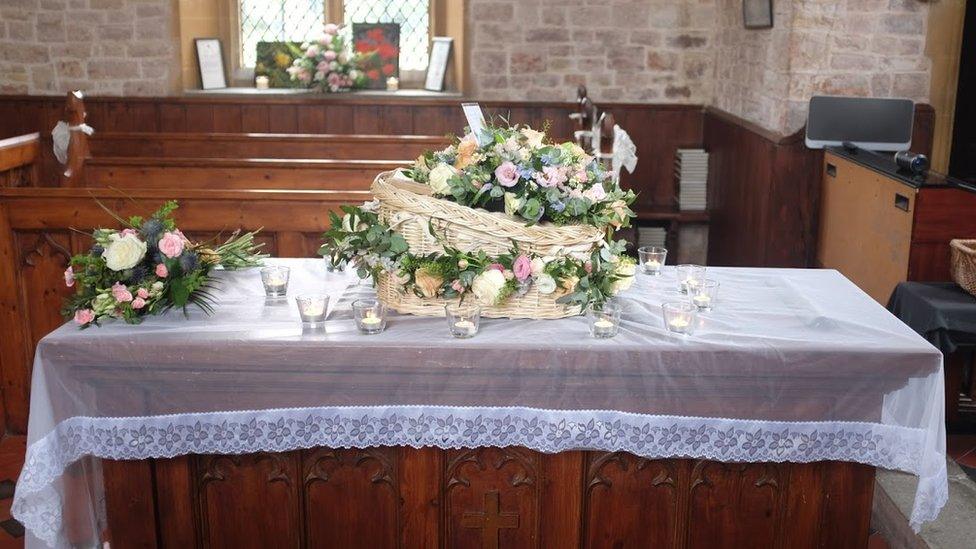
- Published28 October 2020
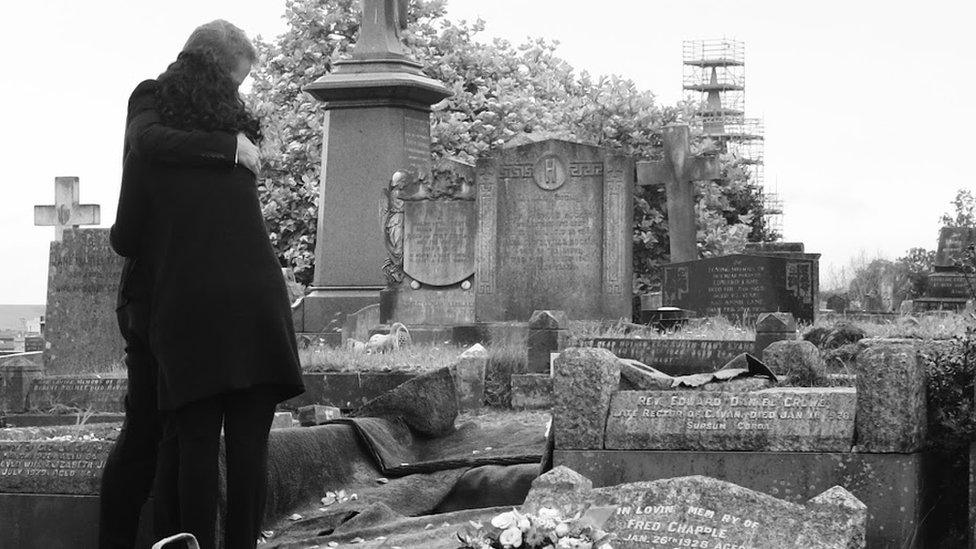
- Published27 March 2020
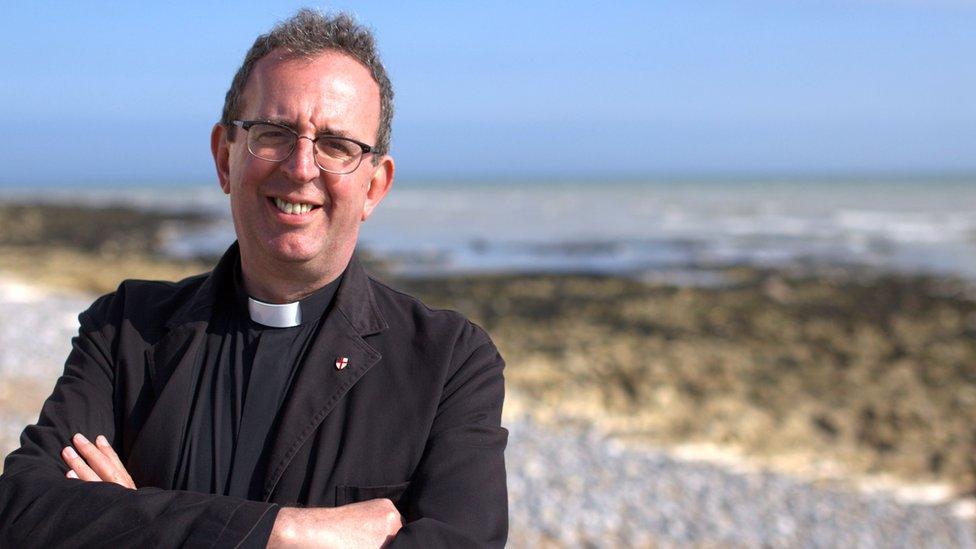
- Published26 January 2021
